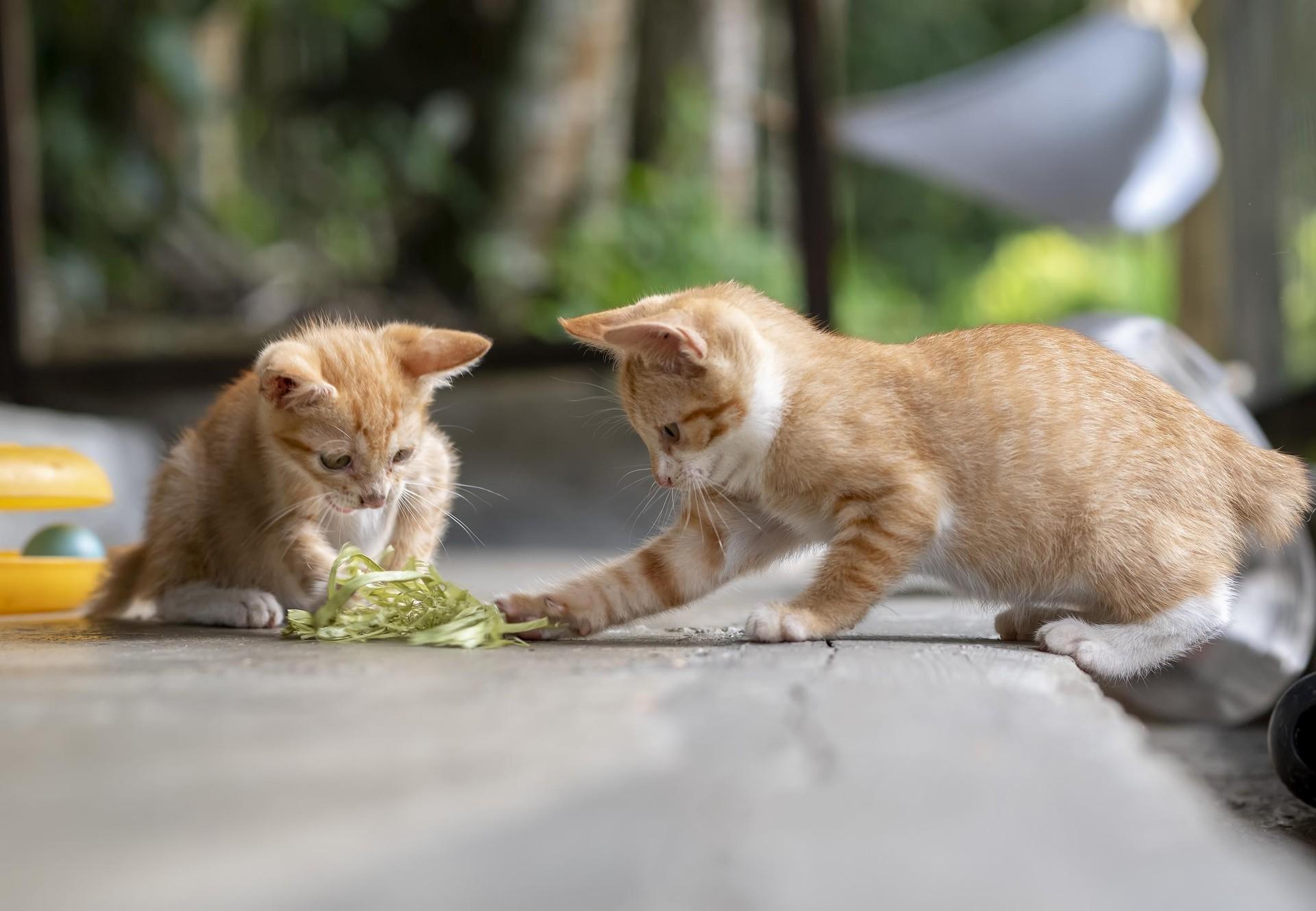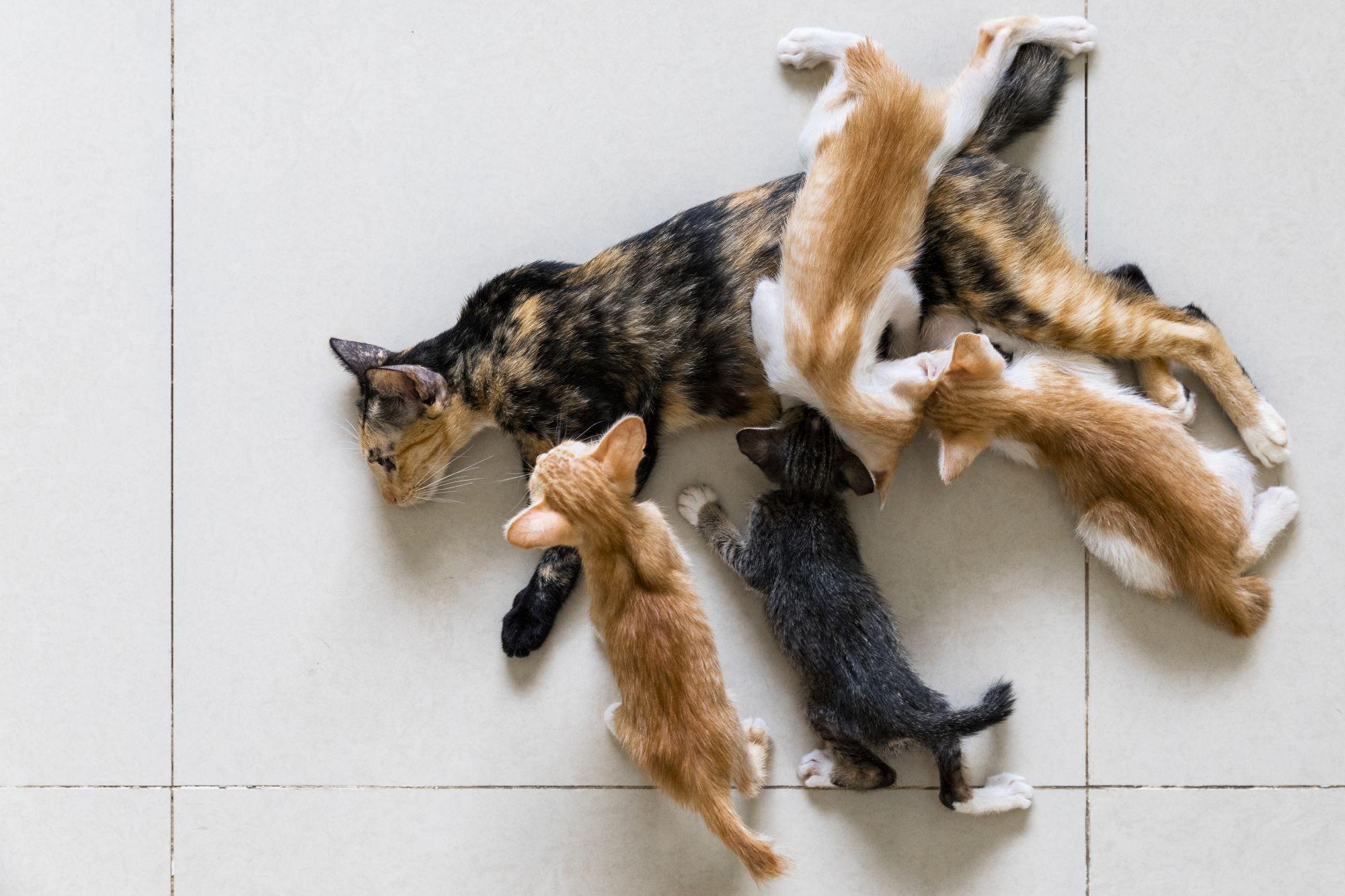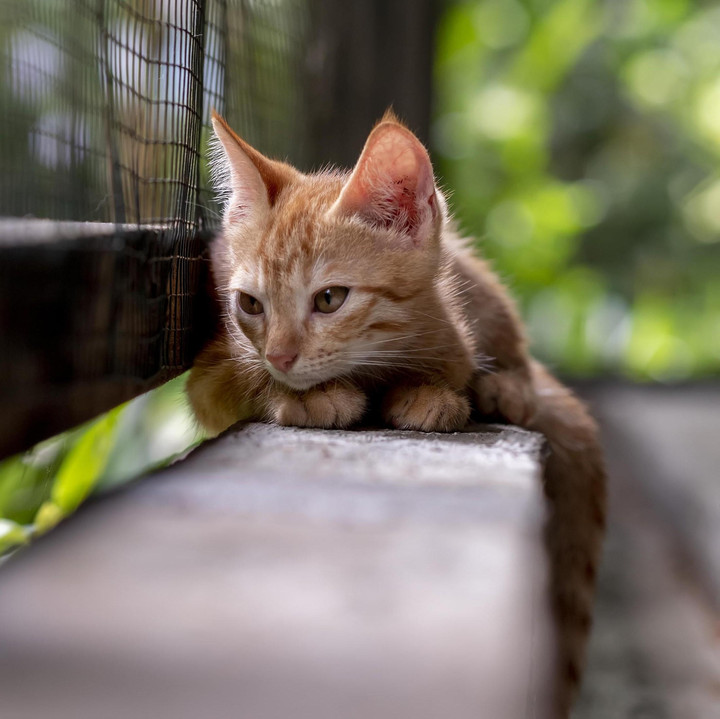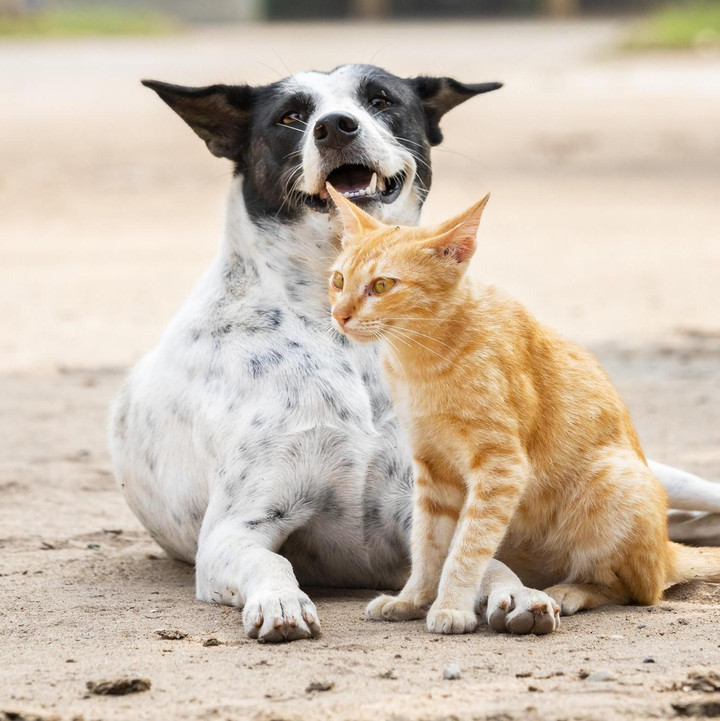
Kittens and Their Development
Cats are born blind and deaf, but develop strong senses right after birth
The early weeks: dominated by inherited behaviour Kittens are born blind and deaf. Right from the start, however, they react very sensitively to tactile stimuli such as being cleaned by their mother. If a kitten is separated from the litter or is hungry, it lets out a special cry, which its mother is able to distinguish from the cries of kittens from other litters.
Even at birth, a kitten’s sense of smell is already well developed: every kitten recognises its mother’s teat by a unique scent. This natural form of regulation ensures peace at feeding time, since even new-born kittens exhibit strongly defensive behaviour when it comes to protecting their own interests. The sense of touch is already active at birth, as opposed to the eyes and the ear channels: these are closed at first, opening after around ten days.
Even at the age of five weeks, the exceptionally fine senses (smell, hearing, taste, sight and touch) that will go on to determine the cat’s future life and survival are already fully developed.

The sensitive phase
To ensure healthy social development, new-born kittens require contact with their mother and siblings up to at least the eighth week. Until the animal is weaned, the litter provides a close social structure. And given an adequate supply of food, a family unit will have no problem continuing to live together subsequently.
The socialisation of a kitten takes place between weeks two and seven (sometimes even extending as far as week ten). During this period, it needs to have many experiences; these are essential to ensure the healthy development of its brain. If, however, the cat experiences little at this time, it may find many stimuli difficult to process later on and will therefore have trouble coping with its environment for the rest of its life.
Find out more about experiences kittens should have with:

To ensure a positive relationship with humans

To help them deal with the world well later in life

Contact with other cats and animals is also very important,
Cats who have had no contact with humans during this phase (e.g. descendants of strays who are not found until later) will not subsequently be able to live in close contact with humans. Locking them up in your home will automatically lead to fear, aggression and/or soiling. Such kittens should be neutered, vaccinated, tagged and returned back into their territory and looked after by supplying them with food.
Exploring the environment and playing
Towards the end of their first month, kittens begin to explore their environment. By playing with the others in their litter and mother, they get to know the subtleties of feline communication and social behaviour together. By the sixth week, they will already be starting to think about hunting and fighting.
When playing, their imagination is fully engaged. Regular play provides them with good training for later survival. Through playful activity, they acquire experience of their surroundings, cautiously preparing themselves for the adult world.
At the age of 12–16 weeks, cats become more and more independent. Puberty begins between the fifth and eighth month, and this is also when kittens become sexually mature. So, where pairings include kittens of both genders, and for cats who are allowed out, it is advisable to carry out neutering early when they are three and four months old. This will help cats coexist harmoniously and prevent unwanted pregnancies.
 Please be careful! If you delete this page, consider that it could be used within an other language version.
Please be careful! If you delete this page, consider that it could be used within an other language version.
